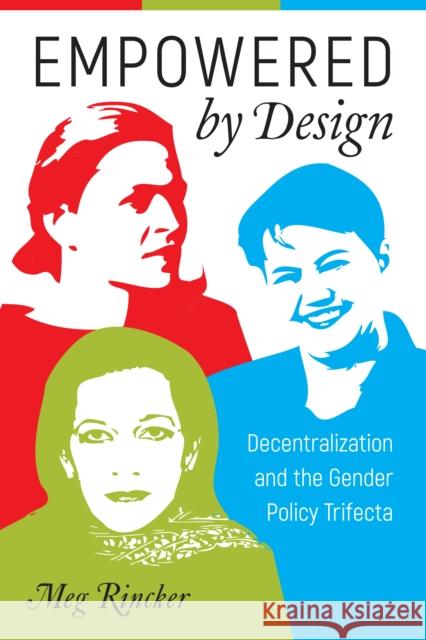Empowered by Design: Decentralization and the Gender Policy Trifecta » książka
Empowered by Design: Decentralization and the Gender Policy Trifecta
ISBN-13: 9781439913963 / Angielski / Twarda / 2017 / 210 str.
Empowered by Design: Decentralization and the Gender Policy Trifecta
ISBN-13: 9781439913963 / Angielski / Twarda / 2017 / 210 str.
(netto: 359,17 VAT: 5%)
Najniższa cena z 30 dni: 372,52
ok. 30 dni roboczych.
Darmowa dostawa!
In her probing book, Empowered by Design, Meg Rincker asks, Under what conditions will decentralization lead to women's empowerment in countries around the globe? Using three case studies-the United Kingdom, Poland, and Pakistan-she shows how decentralization reforms create new institutional offices as power shifts from the national level to a meso-tier level, which is located between the national government and local municipalities. These shifts impact a country's political, administrative, and fiscal reforms as well as women's representation. Rincker argues that this shift should be inclusive of women-or at least lead more women to participate in institutions-but this is not always the case. She indicates that three conditions, "the gender policy trifecta," need to be met to achieve this: legislative gender quotas, women's policy agencies, and gender-responsive budgeting at the level of governance in question. Rincker's innovative research uses original comparative data about what women want, quantitative cross-national analyses, and interviews with women's organization leaders and politicians to show how cross-institutional policymaking can empower women. Rincker's fine-grained analysis makes a significant contribution to the study of representation and gendered implications of decentralization, as well as how representatives go about understanding and aggregating our diverse policy preferences.











